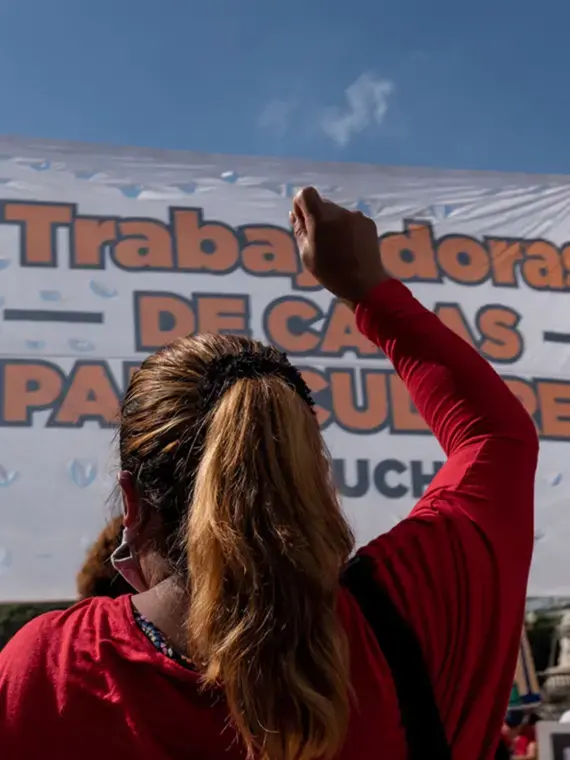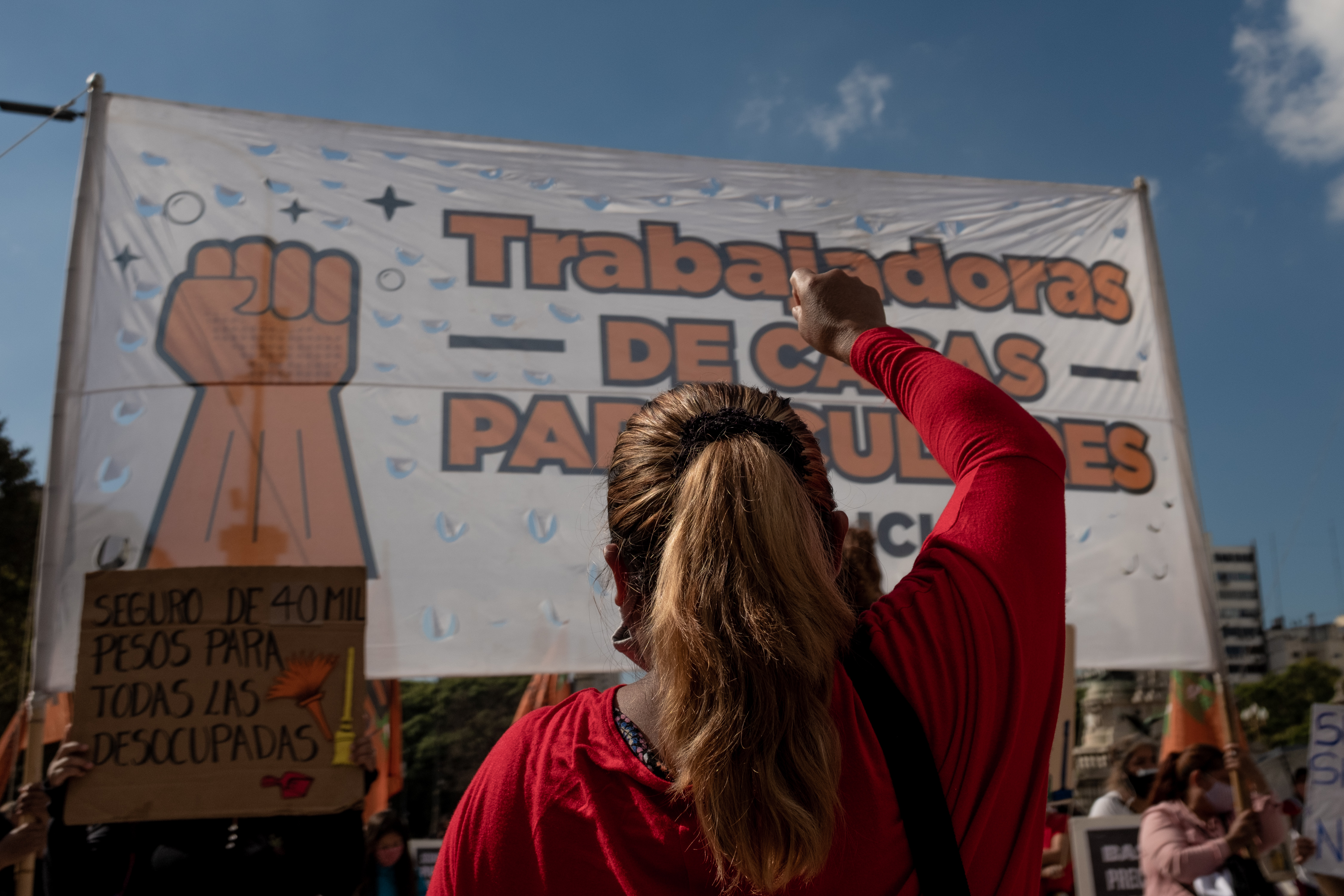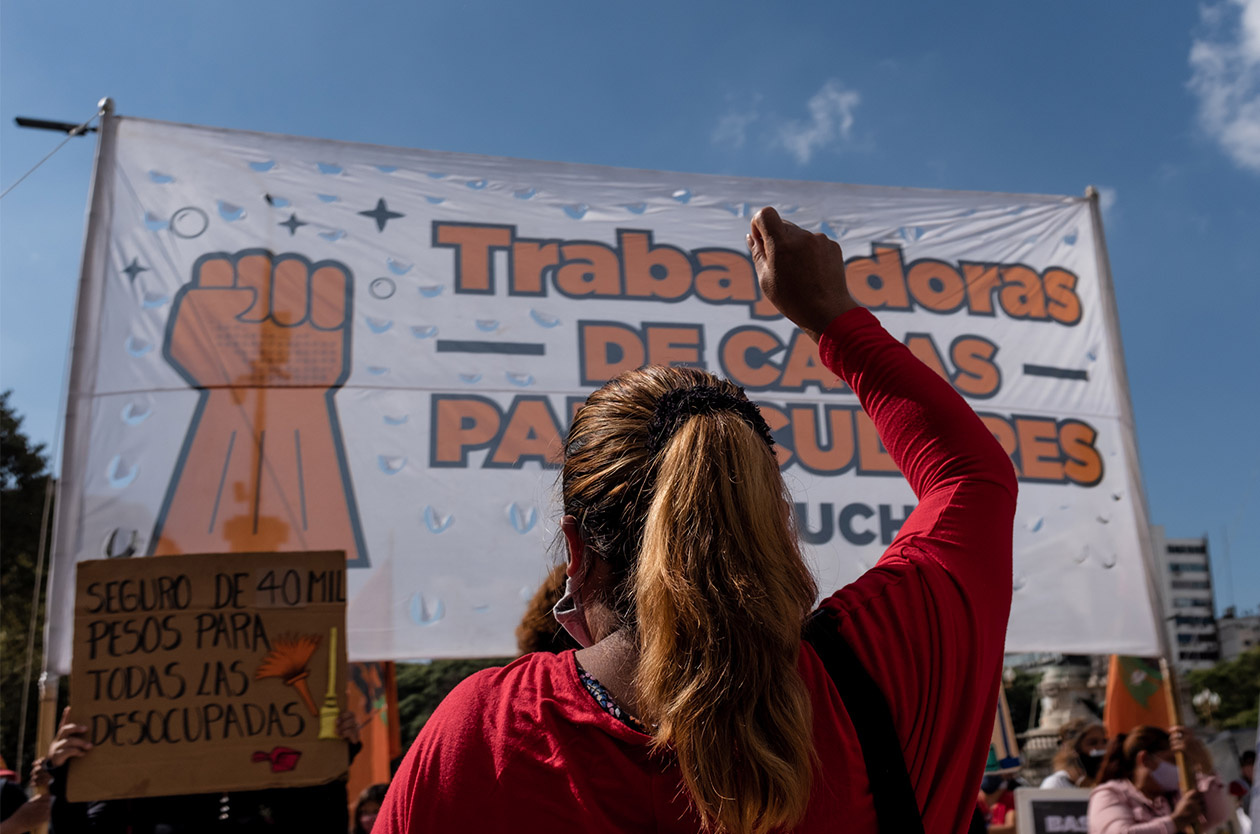In Argentina, household workers—95% of whom are women—have been among the hardest hit by the pandemic. They were one of the last groups to be given permission to start working again after seven months of lockdown.
This group represents 17% of all the working women in the country, and is predominantly unregistered labor. During the pandemic, they were often scapegoated as potential transmitters of the virus into homes.
This deterioration of working conditions has also led to a renewed sense of empowerment: domestic workers are organizing themselves in new ways, believing that collective solidarity is the way to fight for labor rights and gain visibility.
This series looks at women household workers at the front of the collective organization, following them in their daily lives and focusing on the organization and collective process, as well as in their homes and family moments.
The story of these women in Argentina intersects with issues of migration, gender equality, and income inequality. It is also an example of the long tradition of organizing collective rights in the country.














